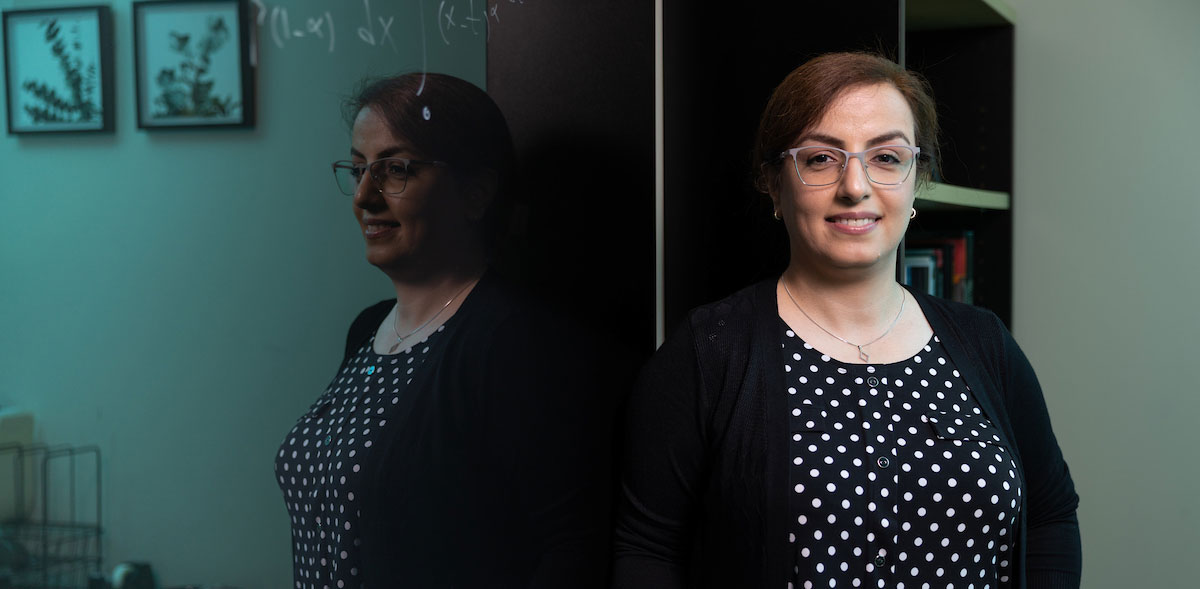

KENNESAW, Ga. | Dec 7, 2022
Kennesaw State University researcher Somayeh Mashayekhi is collaborating on a study in which she is using advanced mathematics to help fight disease by predicting virus mutations.
Mashayekhi, an assistant professor of mathematics, whose research is funded by a $112,356 National Science Foundation (NSF) grant is using fractional calculus to explore genetic differences within populations. She is working in an interdisciplinary study to build on a mathematical theory she and her collaborator, professor Peter Beerli of Florida State University, developed in 2019.

“Finding a cure for diseases is one of the most important endeavors there is and I am thrilled to be able to apply my knowledge in that effort,” Mashayekhi said. “Since population genetics studies are a powerful tool for obtaining new insight into the genetic basis of infectious diseases, I got interested in developing my research in this direction.”
Mashayekhi and Beerli use fractional calculus with coalescent theory, which studies how traits in a population descended from a common ancestor. The researchers published a paper connecting the theory with population genetics in the Proceedings of the National Academy of Sciences in 2019, which led to their current NSF grant.
Mashayekhi’s task in the research is to analyze a multitude of population genetic traits to make predictions on the chances of viruses mutating or dying based on calculations – all using fractional calculus.
The collaborative nature of mathematics and its applications across all disciplines has driven Mashayekhi’s career so far. In addition to the publication with Beerli, Mashayekhi has published papers in journals related to physics and materials science and said she hopes to continue with interdisciplinary collaboration. At Kennesaw State she has helped students with research in engineering and biology.
“Fractional calculus has unusual properties that help us to look at various phenomena from different perspectives,” she said. “I am open to developing my research on the applications of fractional calculus in other disciplines.”
– Dave Shelles
Photos by Matt Yung
A leader in innovative teaching and learning, Kennesaw State University offers undergraduate, graduate, and doctoral degrees to its more than 51,000 students. Kennesaw State is a member of the University System of Georgia with 11 academic colleges. The university's vibrant campus culture, diverse population, strong global ties, and entrepreneurial spirit draw students from throughout the country and the world. Kennesaw State is a Carnegie-designated doctoral research institution (R2), placing it among an elite group of only 8 percent of U.S. colleges and universities with an R1 or R2 status. For more information, visit kennesaw.edu.